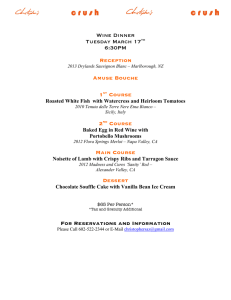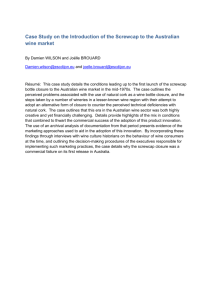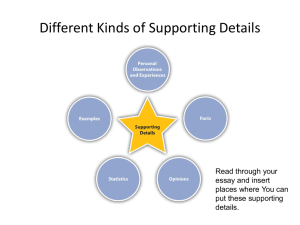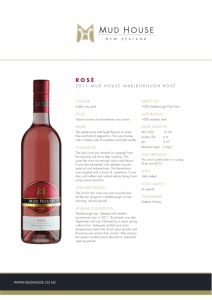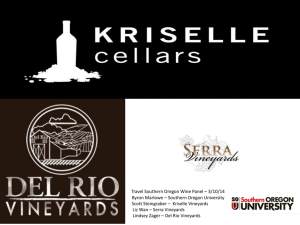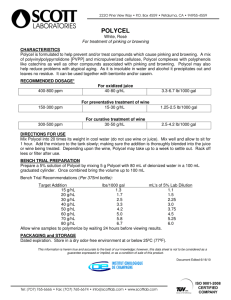california wine profile 2013
advertisement
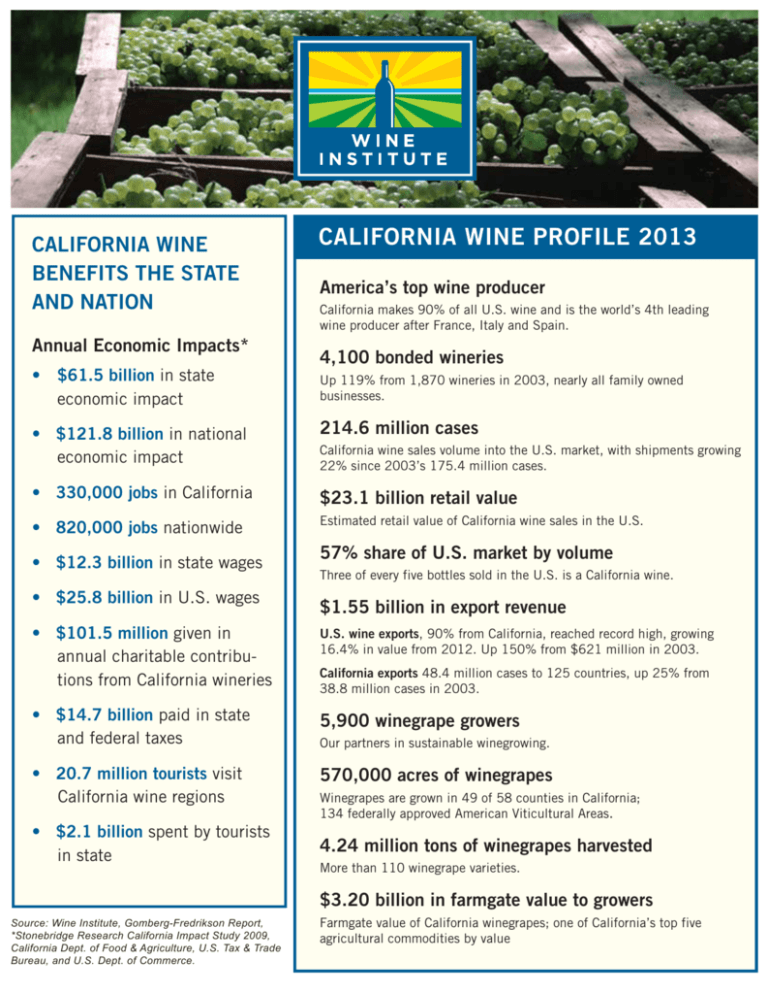
CALIFORNIA WINE BENEFITS THE STATE AND NATION Annual Economic Impacts* • $61.5 billion in state economic impact CALIFORNIA WINE PROFILE 2013 America’s top wine producer California makes 90% of all U.S. wine and is the world’s 4th leading wine producer after France, Italy and Spain. 4,100 bonded wineries Up 119% from 1,870 wineries in 2003, nearly all family owned businesses. • $121.8 billion in national economic impact 214.6 million cases • 330,000 jobs in California $23.1 billion retail value • 820,000 jobs nationwide Estimated retail value of California wine sales in the U.S. • $12.3 billion in state wages • $25.8 billion in U.S. wages California wine sales volume into the U.S. market, with shipments growing 22% since 2003’s 175.4 million cases. 57% share of U.S. market by volume Three of every five bottles sold in the U.S. is a California wine. $1.55 billion in export revenue • $101.5 million given in annual charitable contributions from California wineries U.S. wine exports, 90% from California, reached record high, growing 16.4% in value from 2012. Up 150% from $621 million in 2003. • $14.7 billion paid in state and federal taxes 5,900 winegrape growers • 20.7 million tourists visit California wine regions 570,000 acres of winegrapes • $2.1 billion spent by tourists in state California exports 48.4 million cases to 125 countries, up 25% from 38.8 million cases in 2003. Our partners in sustainable winegrowing. Winegrapes are grown in 49 of 58 counties in California; 134 federally approved American Viticultural Areas. 4.24 million tons of winegrapes harvested More than 110 winegrape varieties. $3.20 billion in farmgate value to growers Source: Wine Institute, Gomberg-Fredrikson Report, *Stonebridge Research California Impact Study 2009, California Dept. of Food & Agriculture, U.S. Tax & Trade Bureau, and U.S. Dept. of Commerce. Farmgate value of California winegrapes; one of California’s top five agricultural commodities by value CALIFORNIA WINE STRENGTHENS COMMUNITIES Enhancing Community Life • • • • • • Predominantly family-owned, multi-generational businesses Committed to California with deep roots in the soil and communities Leaders in sustainable farming and winemaking practices Preserving open space and wildlife habitats Creating scenic, pastoral landscapes Contributing to charities and community betterment projects Enhancing Culture and Commerce • • • • California wine is a signature industry for the state Wineries generate tourism supporting local retailers, restaurateurs and hotels Wineries generate jobs and revenue in rural and urban communities Wineries offer cultural activities such as music, art, theater and gardens What Wine Institute Supports • • • • • • • • • Public policy initiatives that encourage growth of the California and U.S. economies Science-based regulation Moderate, responsible consumption for those who choose to enjoy wine Direct-to-consumer wine shipping laws that favor consumer choice Elimination of trade barriers for California wines in export markets Immigration reform that protects U.S. borders and ensures a reliable workforce Funding for agricultural research and promotion to remain competitive in the global marketplace Sustainable winegrowing and winemaking practices A Code of Advertising Standards that requires responsible marketing practices by Wine Institute members Established in 1934, Wine Institute is the association of 1,000 California wineries and affiliated businesses that initiate and advocate state, federal and international public policy to enhance the environment for the responsible production, consumption and enjoyment of wine. For more information, contact Wine Institute: 415/512-0151, www.wineinstitute.org or communications@wineinstitute.org. 425 Market Street, #1000, San Francisco, CA 94105
